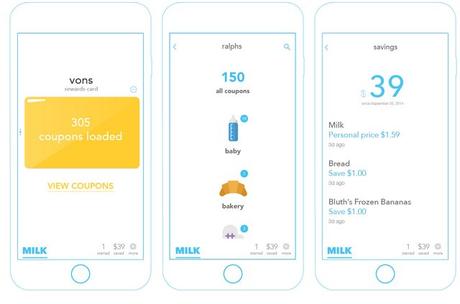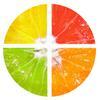The rapid advancement of mobile technology created an entirely new industry around app development. Some apps serve no function but wasting time. Here's looking at you Flappy Bird, and thanks for the memories. Other apps sing the siren song of personal improvement with a combination of fun and punishment, like Carrot, or by freeing up brain space by remembering things for you. New apps that promise to 'gamify' or otherwise imbue one's life with digital elements also present the risk of removing us from our own reality. While there are plenty of fun and functional ways to interact with these products it's crucial not to lose yourself to them.
The Light Side

Reminder apps, without doubt, can actually help to improve your life. Take the Milk app, for example. This app lets you take that all important to-do list with you on the go. No more forgetting that dentist appointment or getting home after work without the potatoes. The app lets you set up reminders via text message, email and instant messenger programs. Need to get Johnny from soccer practice at 5:30? Set a reminder to arrive by text at 5:00. Johnny gets picked up and you avoid some awkwardness. Apps that gamify onerous tasks often help to hasten task completion and improve performance. Fleetly, a workout app, gamifies the process of exercise by leveraging human competitiveness. It assigns point values to your workout activities and drops high performers onto a leaderboard. Seeing how your performance compares with other people's performance can encourage you to take things up a notch.
The Dark Side
Reminder apps and apps that "gamify" also have something of a dark side. Consider the contact list on your phone, which acts like a primitive app for remembering numbers. How many phone numbers do you remember now? Your phone number? 911? An app like Remember the Milk can become a crutch that people bring up as an excuse for not practicing good memory skills and failing to complete important tasks. How often do people say, "It never got onto my to-do list?" Apps that gamify important tasks lead to situations where the game objectives, rather than real life goals and responsibilities, take precedence. If you spend all your time trying to reach the leaderboard on Fleetly or unlocking new levels on Carrot, it could take a toll on your relationships as well as your job.
Keeping It in Check
Striking the right balance with reminder apps isn't always easy. Constant connectivity can mask an unhealthy relationship, as most of us have grown accustomed to uninterrupted satellite internet access, as well as consistent feeds of "information" from numerous mobile devices. One quick test is to take a look at the things on your to-do list reminder app. How many of the things on the list are critical tasks? If you find your list is filled with things other people seemingly remember with ease, like putting gas in your car, you're probably relying on it too much.
Another test is to spend a day tracking how much time you spend on apps that gamify tasks.How much of that time is necessary? A little extra time is probably fine, but it needs to be reasonable. Having a statistic that tells you how much time you spent absorbed in your mobile world can help spur a change. The final test is other people. When you start hearing people say things like, "You're always on your phone!" or, "Are you in a committed relationship with Carrot?" it might be time to rethink your app attachment.
About the author -:Beth Kelly is a freelance writer and blogger. Born and raised in Michigan, she moved to Chicago to attend DePaul University where she graduated with a BA in Communications and Media. She lived in Krakow, Poland briefly before moving to South Korea to teach English. Follow her on

